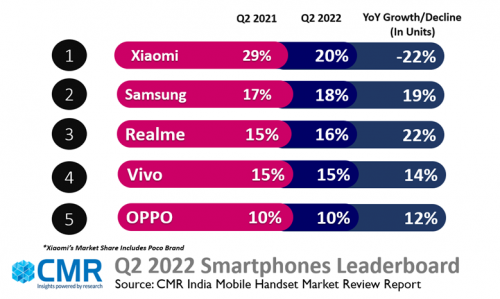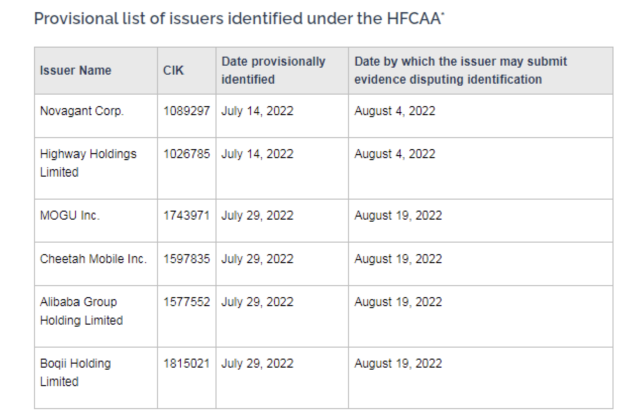your current location is:Home > Finance > depthHomedepth
The controversial "labor dispatch" has actually become a star track for venture capital in the United States

Welcome to the WeChat subscription number of "Sina Technology": techsina
Text/Du Chen
Source/Silicon Star (ID:guixingren123)
Due to social structure, economic environment, personal circumstances and many other reasons, there is a huge demand for "labor dispatch " in the world. In recent years, some large-scale and professionally operated human resources and agency companies have emerged.
However, even so, the matter of "labor dispatch" has been controversial in many places: whether the company transfers the cost of employment, whether the employees dispatched by the labor service can get equal pay for equal work... These gray areas have made this employment method "infamous" .
However, if we turn our attention to the United States, we will be surprised to find:
Due to the popularity of telecommuting, "labor dispatch" and other similar personnel agency businesses have instead become one of the star tracks in the field of technology entrepreneurship and investment.
"Nominal employer" is very popular, and the leader has increased 100 times in two years
Deel, a San Francisco-based HR startup, has become the most talked-about frontrunner in the payroll+compliance space.
The two co-founders of the company are immigrants, Alex Bouaziz is from France, and Wang Shuo was born and raised in Beijing. The two met when they were students at MIT ten years ago. After graduation, they started their own businesses. They encountered difficulties in hiring remote employees. After meeting again, they decided to start a new entrepreneurial journey in this direction. Their project Deel was successfully shortlisted for the YCombinatorW19 issue and successfully graduated from this top startup incubator.
 Image credit: YCombinator
Image credit: YCombinatorFor example, a company A wants to recruit people in a small island country in the Pacific Ocean, but it does not understand labor laws and policies, and it is very troublesome to deal with. At this time, A can ask Deel to help with the local administrative personnel work.
Because Deel has set up a local entity with a corporate bank account, it can hire local employees, pay salaries, and replace Company A to undertake trivial matters required by relevant local regulations, such as social security, taxation, and work visas.
Agencies like Deel are playing the role of what is known as an "Employer of Record" (EoR) status.
Through nominal employers, real employers can still recruit employees locally, so that they can expand the market more flexibly and quickly, and at the same time do not have to bear excessive commercial "trial and error" costs, and avoid the excessive impact of local legal and policy compliance risks; local employees The labor relationship is still in the local area. While working for an overseas company, you can enjoy the relevant local social benefits, which is indeed more convenient on the whole.
Deel has developed an overseas remote/outsourced employee and payroll management platform. The number of employees in each country and region, the distribution of overseas salaries last month, and the contract status of specific employees can be easily viewed on this one-stop platform:
 Image credit: Deel
Image credit: DeelMore importantly, Deel has also achieved a high degree of automation in the related documents and processes of employee remote onboarding , data filing, and compliance applications . As long as the company and the employee have negotiated, the relevant compliance documents will be generated through Deel's automated platform. In the most ideal case, from the issue of the offer to the completion of the onboarding, it only takes "a few minutes" to complete.
 Image credit: Deel
Image credit: DeelAs a result, Deel's products have brought great convenience to the financial, recruitment, legal affairs and other administrative positions within multinational companies. This is why this young company, founded in 2019, has now become one of the most popular and fastest-growing companies in the field of cross-border "nominal employers" in the era of remote work. (Also, Deel himself works entirely remotely.)
Deel's one-stop platform currently supports nearly 100 countries. Shuo Wang, co-founder and chief revenue officer, revealed in April that it took only 20 months for the company to achieve a hundredfold increase in annual recurring revenue (ARR) from $1 million to $100 million. Among them, the growth rate as high as 20 times, and last year it also achieved a more than ten times annual revenue growth from 4 million to 54 million US dollars.
The company has completed seven rounds of financing totaling US$680 million in the past three years, and successfully entered the ranks of unicorn companies in the first half of last year. After the completion of the latest round, the valuation is reported to be US$12 billion, and there is still room for continued appreciation. prospect. Its investors include a16z, YC, SparkCapital, Coatue, etc., all of which are top institutions in the field of innovation investment in Silicon Valley and the United States.
In order to supplement its business capabilities and protect its market share in overseas markets, Deel has also initiated a number of acquisitions. The company, for example, acquired its German counterpart Zeitgold last year, Australian rival PayGroup in June, and Seattle-based immigrant work visa service LegalPad two weeks ago.
Telecommuting still going strong, HR agency 'reasonable to exist'
At the beginning of the article, the “labor dispatch” business, which was once very popular in China, was mentioned. To be precise, Deel's "nominal employer" professional services are not exactly the same as domestic "labor dispatch", and there are indeed big logical differences:
Deel's model is aimed at employers/enterprise users, and the purpose is to help companies reduce friction in the process of cross-border business development and recruitment, and avoid unnecessary and unpredictable additional costs.
However, in terms of actual business content and final effect, the two are still highly similar, and both can play a role in adjusting, stabilizing and lubricating the job market, which is why they were born and exist.
We have previously reported that due to factors such as economic downturn and reduced efficiency, a number of large Silicon Valley companies have "repented" on telecommuting. Even so, as more and more companies become multinational companies, telecommuting still remains. is an irreversible trend.
For employers, recruiting remote employees involves both the need for cross-border business to generate local recruitment and the consideration of human resources/operation and maintenance costs; for ordinary people, the economic downturn has indeed led to a large number of layoffs. With many people unable to find jobs locally, remote work has naturally become an option.
Following this trend, in the past two years, many startups providing "nominal employer" and related services have achieved rapid growth, such as Mosey, Symmetrical.ai, Remote, Multiplier, etc.
Unlike Deel, which is spread all over the world, Mosesy, which was just founded in 2021, specializes in the interstate telecommuting business between the 50 states in the United States . It is precisely because of the unique system of the United States that labor laws between states are different. Employment, payroll, medical insurance, etc. are extremely complex. According to some professional estimates, the total cost of U.S. companies to achieve employee income tax compliance in the United States is as high as 2 billion yuan per year.
Because the water is so deep, there are "ferrymen" like Moses.
 A demonstration of the Mosey product interface, which can display the number of employees in each state, compliance risks, and relevant business entry points for employers. Image source: Mosey
A demonstration of the Mosey product interface, which can display the number of employees in each state, compliance risks, and relevant business entry points for employers. Image source: Mosey"One of the most important issues in the future of work is the decoupling between where you work and where you live. This has important implications for increasing the popularity of job opportunities, but unfortunately, our country's interstate compliance The work is too difficult," said Moesey founder Alex Kehayias.
So far, his company has received a total of $21 million in financing. Investors and corporate users expect to use Moses to reduce the difficulty of work, make full use of the supply of human resources in the current job market that is different from the past, and seek new growth opportunities in the context of economic downturn.
Multiplier, a roughly comparable competitor to Deel's business, supports remote payroll in about 120 countries. Its investors include Sequoia India, Tiger Global, etc. It just completed a $60 million Series B financing in March this year, with a valuation of $400 million.
 Image credit: Multiplier
Image credit: MultiplierCollective’s business model is even more unique: It focuses only on serving those who are “self-employees,” such as content creators, designers, real estate agents, brick-and-mortar retailers, and more. This company integrates all the logistical services these freelancers may need, including but not limited to entity registration, financial bookkeeping, tax filing, legal compliance, and more.
Founded in 2020, the company has received three rounds of venture capital totaling nearly $30 million. Supporters include investment institutions such as GeneralCatalyst, QED, and Google Gradient Capital, as well as founders and angels of well-known companies such as Uber, Stripe, and Substack. Investors.
 Image credit: Collective
Image credit: CollectiveIt is an indisputable fact that the economic situation of many countries, including the United States, has entered a period of decline. Company funding difficulties, bankruptcy, and layoffs have become quite common, and the trickle down to the bottom, the victims are every ordinary person.
In terms of ensuring and activating the flexibility of the global cross-border job market, and reducing the further negative impact of unemployment on the economy, these "nominal employer" startups have indeed made some interesting attempts, which are worthy of reference.
What do you think of the specialization of "labor dispatch" and "nominal employer"? Welcome to share with us by leaving a message!
Previous:4680 battery: Tesla fell into "mass production purgatory"?
Next:Qualcomm plans to re-enter the server market with new chips: targeting customers like Amazon AWS
related articles
Article Comments (0)
- This article has not received comments yet, hurry up and grab the first frame~












